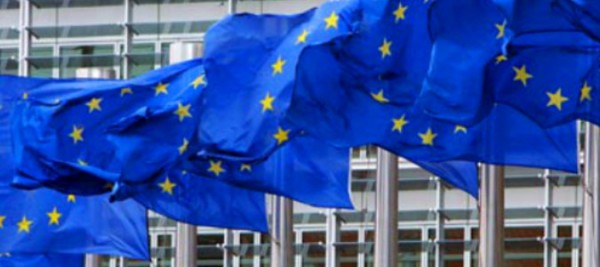
In the July/August 2013 issue of Foreign Affairs, Nicolas Berggruen and Nathan Gardels outline a blueprint for moving toward a more federal European Union. Berggruen and Gardels argue that Europe’s economic future depends on a more federal union. Direct election for the EU presidency, reforming the European Parliament, and reconstituting the European Council as a parliamentary upper house will increase the EU’s legitimacy and its legislative efficiency. The authors point to the Swiss federation, not the U.S., as the best example for the EU to follow. They may well be right. Bypassing the U.S. example entirely, however, overlooks possible lessons for Europe’s future.
Berggruen and Gardels write that “At its moment of federation, in the 1780s, the United States was a sparsely populated handful of young states with a common culture and common language, so it does not provide many relevant lessons for Europe today.” This is an overly sunny perspective on the level of unity in the U.S at its outset. It downgrades the significance of slavery — a cultural and economic division between the colonies so entrenched that the conditions leading to the Civil War were set in the new nation’s DNA. Moreover, while the colonies were united in their desire to escape British rule, that’s where the union ended initially.
Historian Joseph J. Ellis, in his new book Revolutionary Summer, describes the differences between the colonies over the nascent nation’s military needs. Dissent centered on support for the Continental Army, and on the army’s very existence. While the underlying economic support needed to supply the army always existed among the colonies, Ellis emphasizes, raising and organizing that support between them proved difficult for a number of reasons. Loyalties remained local. Further, even those who saw a need for a “national” army to expel the British feared that, in doing so, they risked replicating the very institutions the colonists were fighting against. A third reason, one Ellis does not discuss, may have been cost-sharing. While all colonies stood to benefit from a federal army’s victory over the British, they were not equally equipped to support one either in manpower or economic terms. Even assuming consistent support for the revolutionary cause among the states, distributing the costs evenly was a tall order politically. In fact, despite minimizing the U.S. precedent initially, Berggruen and Gardels end their article citing Treasury Secretary Alexander Hamilton’s plan for assumption of the states’ revolutionary debt as the basis for a federal union. “This was the first step in making the United States a continental and, ultimately, global power,” they argue; “So, too, in Europe debt resolution can be the midwife of a political union that could make Europe a powerful pillar in the geopolitical order of the twenty-first century.”
Berggruen and Gardels make a strong case that resolving the debt wreckage of the recent crisis and preserving the monetary union are necessary steps for the EU’s future. While necessary, they may not be sufficient. Further measures – such as reforming the European Central Bank to incorporate supervisory powers closer to that of Federal Reserve – will be needed to mitigate the damage of future financial crises. As the U.S. was reticent to recreate at home the forces of government power it was fighting against, the EU must also contend with the central role of Germany on the continent. France and Europe’s other major powers turned to the EU to resolve the “German problem” — the threat that a dominant Germany posed to the rest of the continent. Germans leaders themselves, wary of both their history and taking on the role of economic backstop to their neighbors, have to be on board (a recent Economist report on Germany termed the country “the reluctant hegemon.”)
The beginning of discussions over a U.S.-EU Free Trade Agreement is another step toward reinforcing Europe’s economic core, and the next major opportunity for Europe’s federalists.